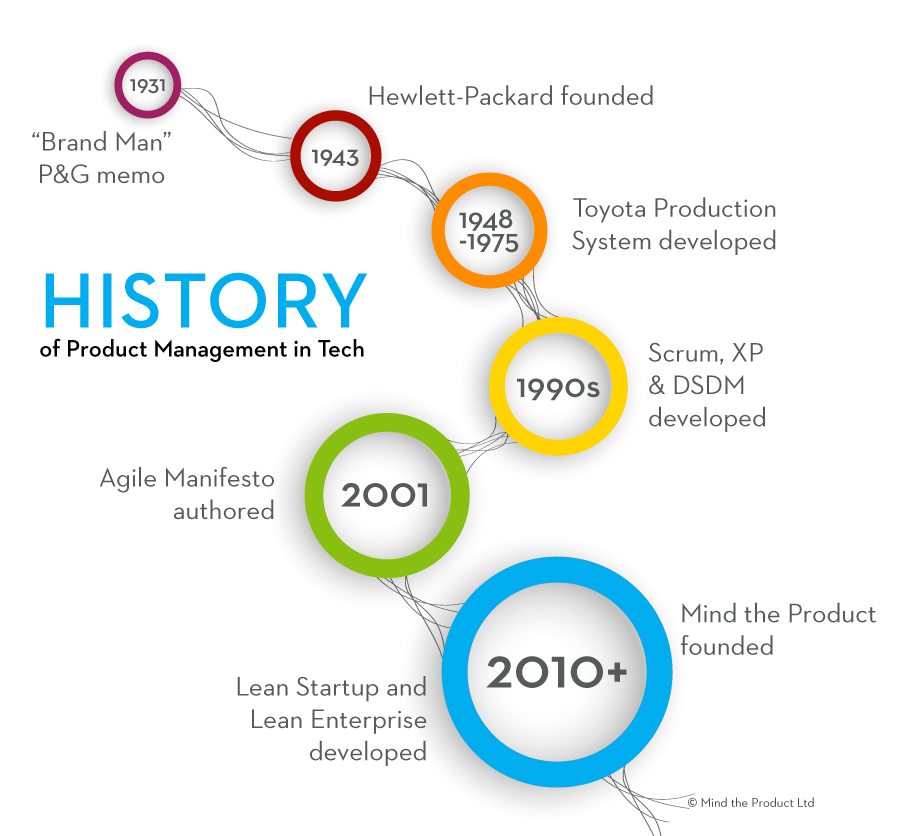Product management as a business discipline dates back to the early days of industrialization. The origin of Product Management is difficult to pinpoint as it has evolved over time and there isn’t a specific person who can be credited with inventing it.
However, the concept of product management originates from a 1931 memo by Procter & Gamble President Neil H. McElroy. McElroy, requesting additional employees focused on brand management, created the role of “Brand Mea (it was the 1930’s). This role who would take on the role of managing products, packaging, positioning, distribution, and sales performance.
In modern terms, McElroy defined the role to include an analyzing product distribution, optimizing working distribution strategies, diagnosing and solving distribution issues, optimizing product positioning and product marketing, and collaborating with regional distribution managers.
Product management began to take shape as a formal discipline in the early 20th century as industrial companies began to focus on mass production and efficiency. However, the role of the product manager at that time was limited to ensuring that products were manufactured to a high standard and that they met the needs of customers, rather than being responsible for the entire product development process. The graphic below from “Mind-the Product” shows the key milestones recognized by practitioners as being important events in the evolution of product management as a discipline.

As the business world has evolved over the past 50 years, so too has the role of the product manager, reflecting the increasing importance of customer-centricity and the accelerating pace of innovation required to achieve and maintain a market leadership in any given industry. With the rise of the service economy, globally dispersed manufacturing, planetary supply chains, and the increasing importance of marketing and brand management, product managers now play a very strategic role in the development and launch of new products.
In the age of AI, the role of the PM has become even more critical, as technology has enabled companies to launch new products and services at a rapidly increasing pace. Today, product managers are responsible for leading cross-functional teams and managing the entire product development process, from idea generation to launch and further evolution. PM’s work closely with customers, sales and marketing to translate customer needs into product requirements, engineers and designers to build new products and features, manufacturing to ensure that the product is built to the highest standards necessary and required to address the needs of the target customer, and customer success to ensure a success roll-out and feedback loop for successful product adoption and evolution. Further, PM’s make extensive use of data and analytics to measure the success of their products and make informed decisions about future product development. Essentially, the PM function serves as the intellectual and physical glue that knits together the multitude of disparate disciplines, functions, and stakeholders required to deliver products to market in a rapid can cost effective manner.
In conclusion, product management as a business discipline is a story of evolution and adaptation, made possible by the contributions and practices of various individuals and organizations across different industries. From its origins as a manufacturing-focused role, the role of the product manager has grown to become a critical strategic position in today’s fast-paced, innovation-driven economy.